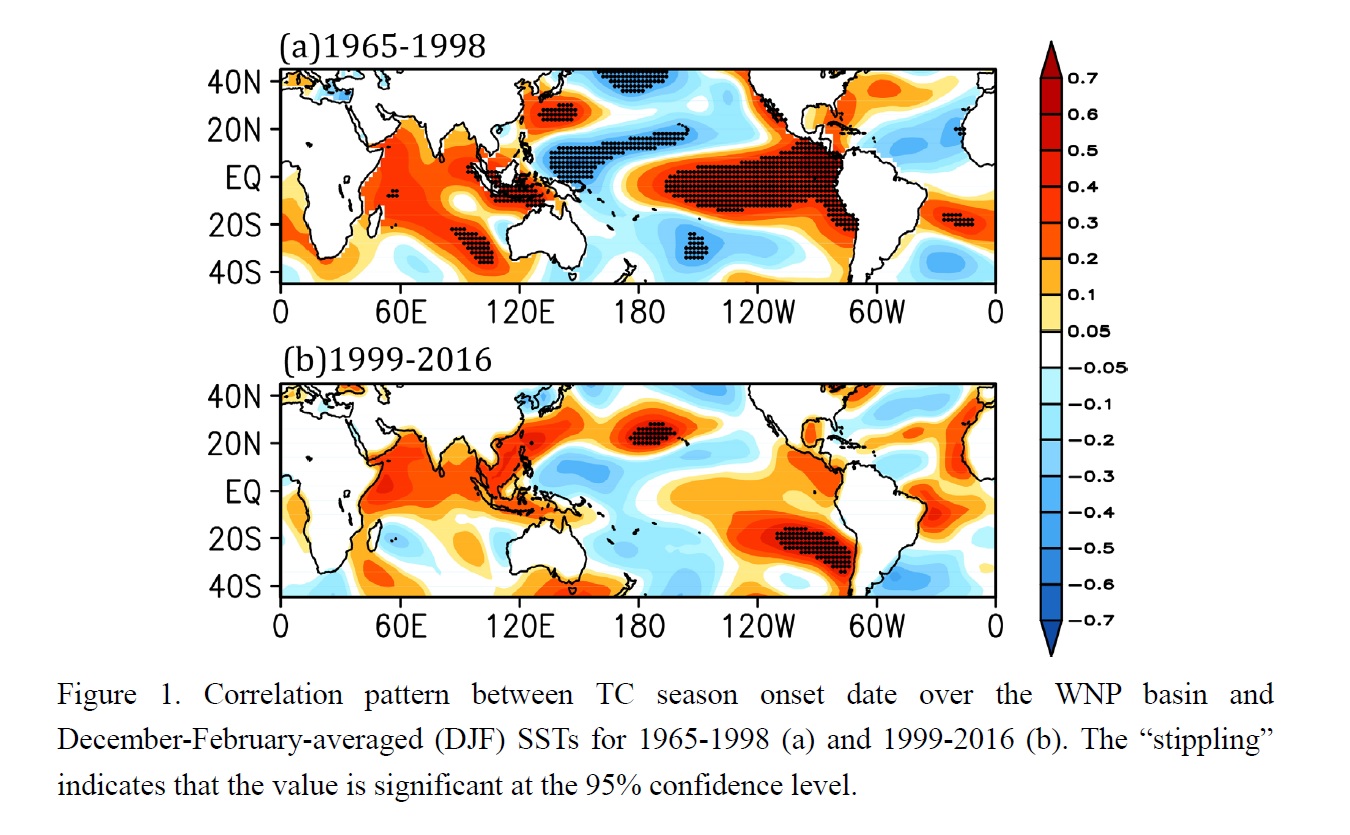Graphical Abstract
Zhao, H., L. Wu, C. Wang, and P. J. Klotzbach, 2019: Consistent late onset of the western North Pacific tropical cyclone season following major El Niño events. J. Meteor. Soc. Japan, 97, 673-688.
https://doi.org/10.2151/jmsj.2019-039
Graphical Abstract with highlights
Plain Language Summary: An accurate prediction of the onset date of an active western North Pacific (WNP) tropical cyclone (TC) season onset (TCSO) is important for planning that can prevent loss of life and property from TC-associated hazards. However, most prior studies have focused on variations of TC frequency, intensity, and track over the WNP, while variability of the WNP TCSO has been relatively less studied. This study finds the relationship between TCSO and sea surface temperature (SST) underwent an interdecadal change in the late 1990s, likely due to a climate shift that occurred around that time. An observed significant correlation between TCSO and SST before the late 1990s and has been insignificant since that time.
Highlights:
- Our results suggest that the relationship between ENSO and TCSO during the satellite era experiences an inter-decadal change in the late 1990s, at a time when other studies have also indicated a climate regime shift.
- Our results suggest that changes in the SSTA pattern over the tropical Indo-Pacific sector associated with major El Niño events play an important role in controlling the extremely late TCSO over the WNP basin.
- Our results indicate that the changing influence of moderate El Niño events on TCSO before and since the late 1990s largely contribute to the inter-decadal change of the ENSO-TCSO relationship.







